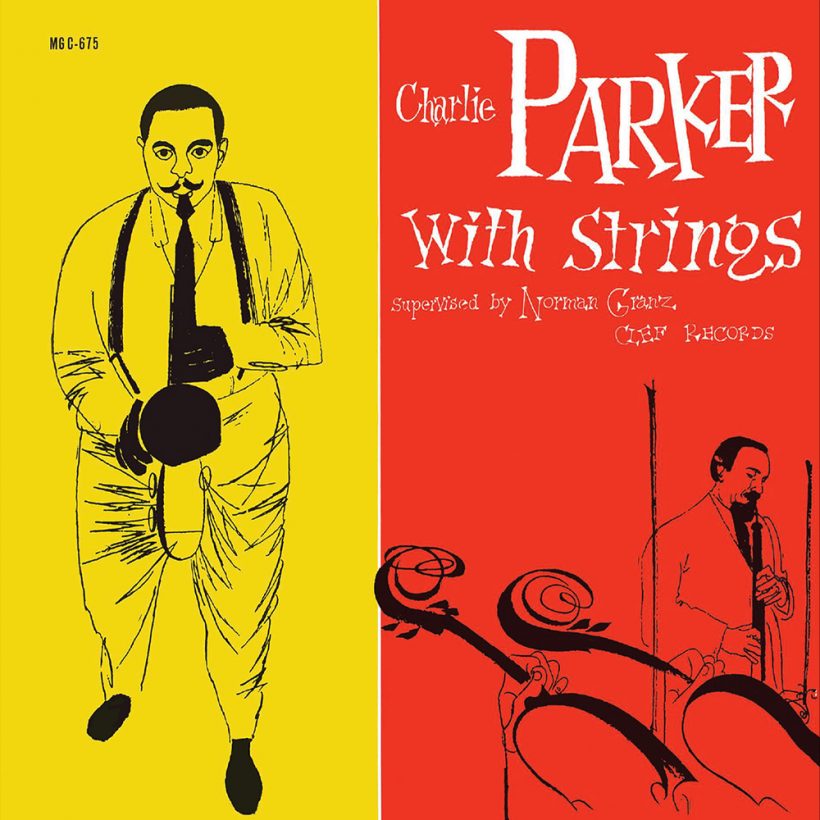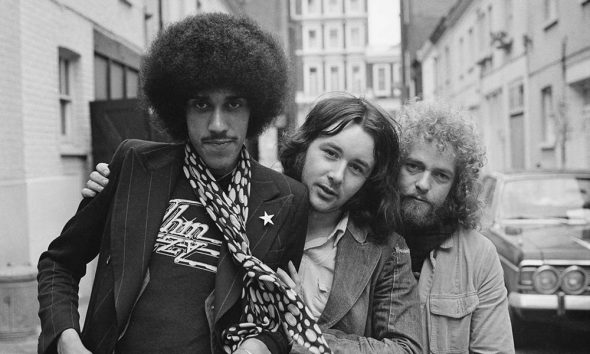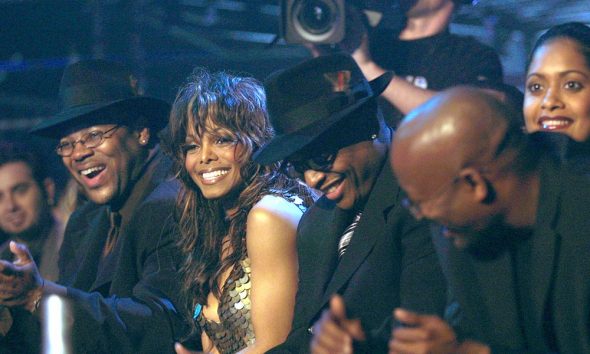Charlie Parker… With Strings Attached
Charlie Parker And Strings marked Bird’s first recording for Norman Granz’s Clef Records, at a session with Machito And His Orchestra.

In January 1949, Charlie Parker recorded for the first time for Norman Granz’s Clef Records at a session with Machito And His Orchestra. More sessions soon followed, and he appeared at the JATP at Carnegie Hall in February, that were recorded featuring Fats Navarro (trumpet) Tommy Turk (trombone) Sonny Criss, Flip Phillips (tenor saxophone) Hank Jones (piano) Ray Brown (bass) and Shelly Manne (drums). But that initial session yielded the magnificent Charlie Parker With Strings.
Several studio sessions were followed by another appearance at the JATP in September. In November 1949 he ‘had recorded Charlie Parker with a group of outstanding longhairs’; a popular term at the time for classical musicians. They were members of the NBC Symphony Orchestra, Pittsburgh Symphony and Minneapolis Symphony, along with a jazz rhythm section of Stan Freeman, Ray Brown and Buddy Rich with the music arranged in ‘straight style’ by Ray Carroll, and ‘Parker’s bop alto featured in front.’ According to producer Mitch Miller, who was also working at Mercury, ‘He asked me if I would produce it for him. He would be there, but I would produce it… And got Jimmy Carroll who had done a lot of arranging for me, to do the arrangements.’
‘Charlie Parker begged me to let him use strings. I don’t think that strings swing in a jazz context, but he begged me so much I gave in to him.’ – Norman Granz
They recorded at Reeves Studio in New York and, according to Miller, who played the oboe and English horn on the session: ‘Charlie walked in and he hears this music and he said, “Man that’s too much.” With that Parker left the studio and disappeared, didn’t come back and the musicians had to be sent away. Granz eventually tracked him down and a week or so later they did the session that produced some of the album that became Charlie Parker With Strings.
Charlie Parker With Strings was originally released as two albums on Clef and they are among the most beautiful jazz recordings ever made. Before the album came out, Mercury, who released Clef’s recordings, issued a string of shellac 78rpm records including the divine, ‘Just Friends’ coupled with ‘Everything Happens To Me’. Producer, and later the head of Verve Records in the 1990s, Tommy LiPuma remembers the impact of ‘Just Friends’: “In the 1950s the jukebox was the deal. As a saxophone player I was gigging, although still at school. I’d sit in with black musicians; the jukeboxes in ‘the hood’ were outrageous. One day I’m sitting there making myself scarce, because I was under-age, and suddenly out of the jukebox comes this record. It was ‘Just Friends’ by Charlie Parker, that first time I heard it I couldn’t believe it.’
On 16 September 1950 Bird played Carnegie Hall as part of Granz’s Jazz At The Philharmonic series of concerts that toured the USA. The tour had opened the night before in Hartford, Connecticut and joining Bird on stage that night were, Tommy Mace (oboe) Ted Bloom, Sam Kaplan, Stan Karpenia (violin) Dave Uchitel (viola) Bill Bandy (cello) Wallace McManus (harp) Al Haig (piano) Tommy Potter (bass) and Roy Haynes (drums).
Over the years the recordings at Carnegie Hall have come out on a variety of albums and they are also included on the ‘Charlie Parker With Strings – The Master Takes’ on Verve records.
If you’ve not heard these recordings then your life is incomplete…it’s that simple.
Buy Charlie Parker With Strings: The Master Takes here.













Lois
September 16, 2014 at 11:17 pm
I THOUGHT “LAURA” WAS ON THAT LP–AM I MISTAKEN?
Harvey Kasser
June 26, 2015 at 2:21 am
Scroll down on the album list and you’ll find Laura
Shaolin
October 28, 2014 at 6:53 am
> Charlie Parker With Strings was originally released as two albums on Clef and they are among the most beautiful jazz recordings ever made. Before the album came out, Mercury, who released Clef’s recordings, issued a string of shellac 78rpm records
Precisely speaking, it’s not correct. “Charlie Parker with Strings” (MG C-101/501) and “with Strings No.2” (MG C-509) was initially released from Mercury Records, as well as 78 rpm binder albums (C-101/501, C-509) and separate 78 rpm releases. Mercury stopped distributing Norman Granz recording in July 1953, then Mr. Granz started releasing them under Clef label since August 1953 (although the word “Clef Series” was already used in Mercury era).
norman Paulk
January 9, 2015 at 8:07 pm
I have the first album with the three Mercury records C 319-324. Wonderful condition.
Rick Margitza
October 29, 2014 at 11:36 am
I have a slight correction regarding the Carnegie hall concert. The cellist is listed as Bill Rundy. His correct name is Bill Bandy. I know this because he was my grandfather. Unfortunately, his name also doesn’t appear on the original studio recording track list as he was a last minute replacemt for the cellist who was sick.
Paul Penta
November 2, 2014 at 11:15 pm
Rick ….. I,work on the American Queen with Ross as bandleader. I have always enjoyed his stories abouf all the musicians in his family. This is the first I’ve heard about one not named “Margitza”. Just for the record, Ross has become one of my best friends and a true treasure with whom to work.
Paul Penta
Derwyn Holder
October 30, 2014 at 5:39 pm
Mitch Miller played English Horn not French Horn, quite nicely actually.
Harvey Kasser
June 26, 2015 at 2:26 am
Mich Miller……Oboe
Smiler Grogan
March 1, 2016 at 12:08 pm
That’s a Cor Anglais (English horn) in the photo (and the cover illustration) but it sure sounds like an oboe on the recordings.
Rob J
October 11, 2016 at 3:16 pm
An exquisite record by one of the greatest musicians in jazz,
Charlie Parker’s life was far from elegant, but he was responsible for
some of the most memorable tracks in the genre.
This album is no exception. Without it, Stan Getz wouldn’t have made
“Focus”, Art Pepper would not have found inspiration for his
brilliant “Winter Moon”.
“April In Paris” is sheer beauty. Even Sinatra would have to acknowledge
this may be the definitive version. Utterly peerless.